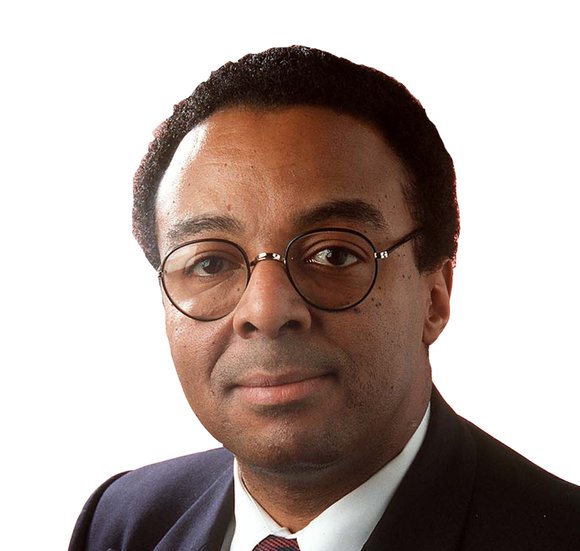When in doubt, blame Obama
10/13/2017, 7:10 p.m.
“Bump stocks.”
Hardly anyone had heard about them before they were found in the late Las Vegas sniper’s arsenal. Association with that massacre has made the devices, which can enable a semiautomatic rifle to fire almost as rapidly as a machine gun, so widely despised that even the National Rifle Association has turned against them in a surprising move — after unsurprisingly blaming Barack Obama.
“Despite the fact that the Obama administration approved the sale of bump stocks on at least two occasions,” read the statement that NRA Executive Vice President Wayne LaPierre and NRA political strategist Chris Cox released Thursday, “the National Rifle Association is calling on the Bureau of Alcohol, Tobacco, Firearms and Explosives to immediately review whether these devices comply with federal law.”
That announcement, with which the NRA broke the media silence it routinely imposes after gun-related mass killings, came as a surprise, since the NRA rarely encounters a firearm that it doesn’t like. Yet the organization bans bump stocks at its own headquarters’ firing range, as many other ranges do. The devices increase the speed at which bullets are fired but they decrease accuracy and are less safe than a semiautomatic weapon alone.
Yet before the NRA’s announcement, conservatives were framing the legalization of the suddenly despised gun accessory as former President Obama’s fault. “It was President Obama’s ATF, the Bureau of Alcohol, Tobacco and Firearms, in 2010 that decided not to regulate this device,” White House adviser Kellyanne Conway told CNN’s Chris Cuomo, calling the deregulation of bump stocks an Obama administration blunder.
Indeed, a day earlier the Washington Post quoted Obama-era ATF official Rick Vasquez, who approved the devices, as saying the Obama administration did not think bump stocks violated federal regulations against machine guns because the devices do not modify the machinery of guns themselves.
Mr. Vasquez, a firearms consultant and trainer, mocked the device as “a goofy little doodad” for “those guys who want to look like super ninja when they’re out on the range.” Federal law bans the sale of machine guns manufactured after 1986 and restricts the sale of those made before then.
Yet Las Vegas shooter Stephen Paddock apparently used a more recent version of that “goofy little doodad” to kill 58 and wound hundreds more before taking his own life, law enforcement authorities said.
If blaming President Obama first, an unwritten but often-employed policy by Washington Republicans, helps to give political cover to lawmakers who will outlaw those “doodads” at last, that’s a small political price to pay.
But true gun safety reform would not end there. It still sounds ironic to blame new gun carnage on a Democratic president who tried as hard as President Obama did to overcome Republican resistance to bipartisan gun legislation without success. One bill after the massacre at Virginia Tech in 2007 would have limited the size of magazines. Another, introduced after the mass shooting in 2012 at a Newtown, Conn., elementary school, would have expanded background checks of gun buyers. Another last year, introduced after the Orlando nightclub massacre, would have stopped gun sales to buyers on terrorism watch lists.
NRA and Republican resistance held despite Obama’s expansions of gun owners’ rights. As Politifact reported, in 2010 President Obama “signed bills allowing Amtrak passengers to pack guns in their luggage and carry loaded firearms into national parks.”
Yet gun sales surged after each of his elections, partly because of widespread fears stoked by paranoid conservative voices that he was going to confiscate everyone’s privately owned guns before sundown on Inauguration Day. That slippery-slope argument that small concessions to gun regulation now will bring gun confiscation down the road still exerts a powerful grip in the gun owner community.
These days the NRA competes not only against gun safety proponents but also against other more extreme groups like the Gun Owners of America, which announced their opposition to a bump stock ban shortly after the NRA called for that possibility to be considered.
Both the NRA and the GOA are more interested in winning another issue, “reciprocity” laws that would make concealed-carry permits issued in one state valid in other states. Before Congress considers that bold move, it should consider others like universal background checks. Whether background checks would have averted Stephen Paddock’s mass slaughter in Las Vegas or not, we’re better off with them than without them.







